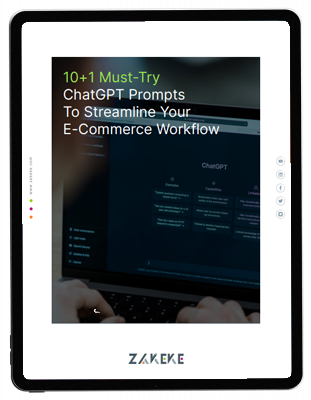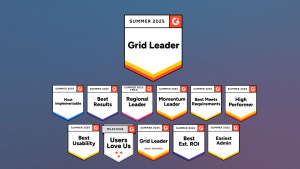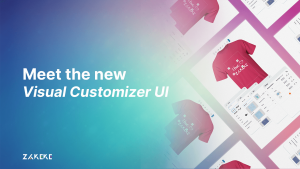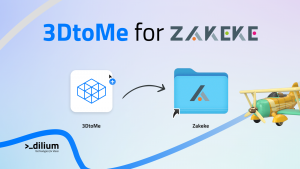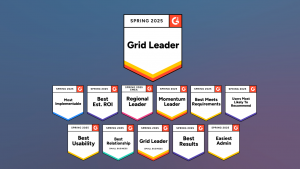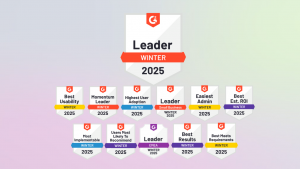Brands and businesses in the consumer market face the difficulty of crafting tailored purchase experiences for their buyers amidst a sea of diverse preferences and behaviors. The task of understanding each customer’s unique needs and delivering personalized product recommendations in real-time can be daunting.
This is where Artificial Intelligence (AI) personalization technologies come into play, which can dynamically adapt to consumer interactions, analyze vast datasets for behavior patterns, and automate customization in marketing at scale.
AI-powered personalization enables businesses to create more meaningful, engaging shopping experiences, resulting in increased customer satisfaction and loyalty.
In this article, let’s explore the five key advantages of leveraging AI-powered personalization for consumer brands and businesses, highlighting how it transforms challenges into opportunities for growth and customer engagement.
1. Improved Retention and Satisfaction
Personalization allows brands to understand individual preferences, pain points, and expectations to deliver them a solution the way they want.
For instance, tools like Customer Relationship Management (CRM) can help businesses configure their offerings for efficient resolution of their audience’s problems.
Similarly configure, price, quote solutions or CPQ software leverage data-backed and dynamic pricing algorithms to generate customized quotes for new and existing buyers to ensure they access your offerings at attractive rates while maximizing your customer lifetime value (CLTV).
However, implementing personalization requires the integration of tech systems and the analysis of large volumes of data to understand customer preferences accurately. Moreover, maintaining the balance between personalization and privacy is a concern.
AI personalization can ease these challenges by automating data analysis and insights generation. For example, AI can predict customer preferences based on past behavior and current trends, making it easier to tailor offerings.
Netflix’s content recommendation algorithm, for example, uses AI-driven personalization to suggest movies and TV shows based on the user’s viewing history and preferences. This level of personalization has contributed to Netflix’s high customer satisfaction and retention rates, demonstrating the potential of AI to transform the customer experience.
2. Accurate targeting and segmentation
Accurate targeting and segmentation are essential for keeping the ROI of your marketing efforts high and delivering personalized messages across all customer touchpoints.
It is done by extracting detailed insights into customer preferences, behaviors, and purchase histories and subsequently creating highly tailored marketing campaigns and product offerings. However, this requires the analysis of vast amounts of diverse data, a deep understanding of market dynamics, and the ability to adapt strategies based on evolving consumer trends.
The difficulty and resource-intensive nature of this task can overwhelm even the most experienced marketing teams, leading to missed opportunities and suboptimal engagement strategies.
AI-powered personalization tools help alleviate these challenges by automating the data analysis process and identifying patterns and segments within the data that might not be immediately apparent to human analysts.
For instance, Starbucks collects mobile app data to group customers based on preferences (drinks, snacks, etc.) and purchase history (frequency, patterns, etc.) and analyzes this data with the help of AI algorithms to offer personalized discounts and recommendations.
AI personalization ensures that marketing efforts are not just broad-strokes attempts at engagement but are carefully calibrated to appeal to the specific interests and needs of different consumer segments, thereby maximizing the impact of marketing initiatives. Additionally, AI can help creating engaging and unique marketing campaigns. For example, an AI song generator leverages advanced AI to create unique music compositions that can enhance personalized content for videos and marketing campaigns. This adds a new level of customization in marketing efforts and user engagement.
3. Higher average cart value
Customization significantly influences consumer behavior and decision-making, leading to a direct increase in the average cart value for businesses and brands.
By tailoring recommendations and offers to align with individual customer preferences, interests, and past purchasing behaviors, companies can effectively encourage customers to add more items to their cart. This strategy not only enhances the shopping experience but also subtly nudges customers towards higher-value purchases or complementary products they are likely to find useful or appealing.
However, achieving this level of personalization requires analyzing the purchase patterns of customers across segments to predict which products they might be interested in which can be prone to errors if automated through behavioral triggers, potentially leading to irrelevant recommendations that can deter customers rather than engage them.
AI-powered personalization algorithms can identify patterns and preferences among vast datasets, allowing for the generation of personalized product recommendations for each customer. Amazon, for example, uses customer data to cross-sell and upsell products, contributing to their sales increase.
By employing similar AI technologies, businesses can enhance their capability to increase average cart values efficiently, offering personalized experiences that are both relevant and engaging, encouraging customers to make more substantial purchases.
4. Better inventory management
Brands and businesses can optimize their inventory levels, ensuring they stock items that are in demand and reduce overstock of less popular products by closely tracking personal data such as customer purchase behavior and seasonal e-commerce trends.
This strategic approach minimizes waste, improves cash flow, and ensures that customers find what they’re looking for more reliably. However, traditional methods of predicting demand and aligning inventory accordingly rely on historical sales data, which doesn’t always account for shifting consumer preferences or emerging trends.
This reactive approach can lead to discrepancies between stocked items and actual customer demand, resulting in unsold inventory or stockouts of popular products during peak sales seasons. AI personalization offers a solution by analyzing current consumer behavior, preferences, and trends in real-time.
By leveraging AI algorithms, Walmart, for example, analyzes purchasing patterns and predicts future demand, enabling more accurate stock levels across their stores and online platforms.
This proactive strategy ensures products that customers desire are available, enhancing satisfaction while reducing inventory costs and improving operational efficiency through AI personalization.
5. Decreased operational costs
Personalization directly contributes to decreased operational costs for businesses and brands by enhancing the efficiency of marketing efforts, reducing inventory waste, and optimizing customer service resources.
For instance, companies can target specific customer segments with tailored messages and offers catered to their needs to achieve higher conversion rates with similar or lower marketing spend.
However, implementing a personalized approach across all customer touchpoints can be challenging. The need to collect, analyze, and act upon customer data requires multiple interconnected tools. But using too many tools can lead to increased costs rather than savings while simultaneously making the relevant workflows complex.
AI-powered personalization technologies streamline these processes by simplifying the process of personalization with fewer tools, thereby keeping workflows straightforward and costs low.
For instance, Bank of America utilizes an AI-powered chatbot, Erica, to provide personalized financial guidance to customers based on their needs and preferences. This process can be really expensive and complex without AI while still delivering a subpar experience.
By leveraging AI personalization, companies can ensure that their workflow efforts are more streamlined leading to overall cost reductions in operations.
Wrapping up
AI personalization technology revolutionizes the way companies in the consumer market interact with their customers, facilitating the delivery of personalized experiences accurately while reducing costs.
Brands and businesses can tailor their offerings, communications, and interactions to meet individual buyer needs, enhancing the overall customer experience.
The advantages of AI-powered personalization include higher customer retention and satisfaction, more accurate targeting and segmentation, increased average cart value, efficient inventory management, and decreased operational costs through enhanced efficiency and automation.
Lucy Manole
Content & Marketing Strategist for SaaS Brands
Lucy Manole is a creative content writer and strategist at Marketing Digest. She specializes in writing about ecommerce, social media, and everything about SaaS. When she is not writing or editing, she spends time reading books, cooking and traveling.




